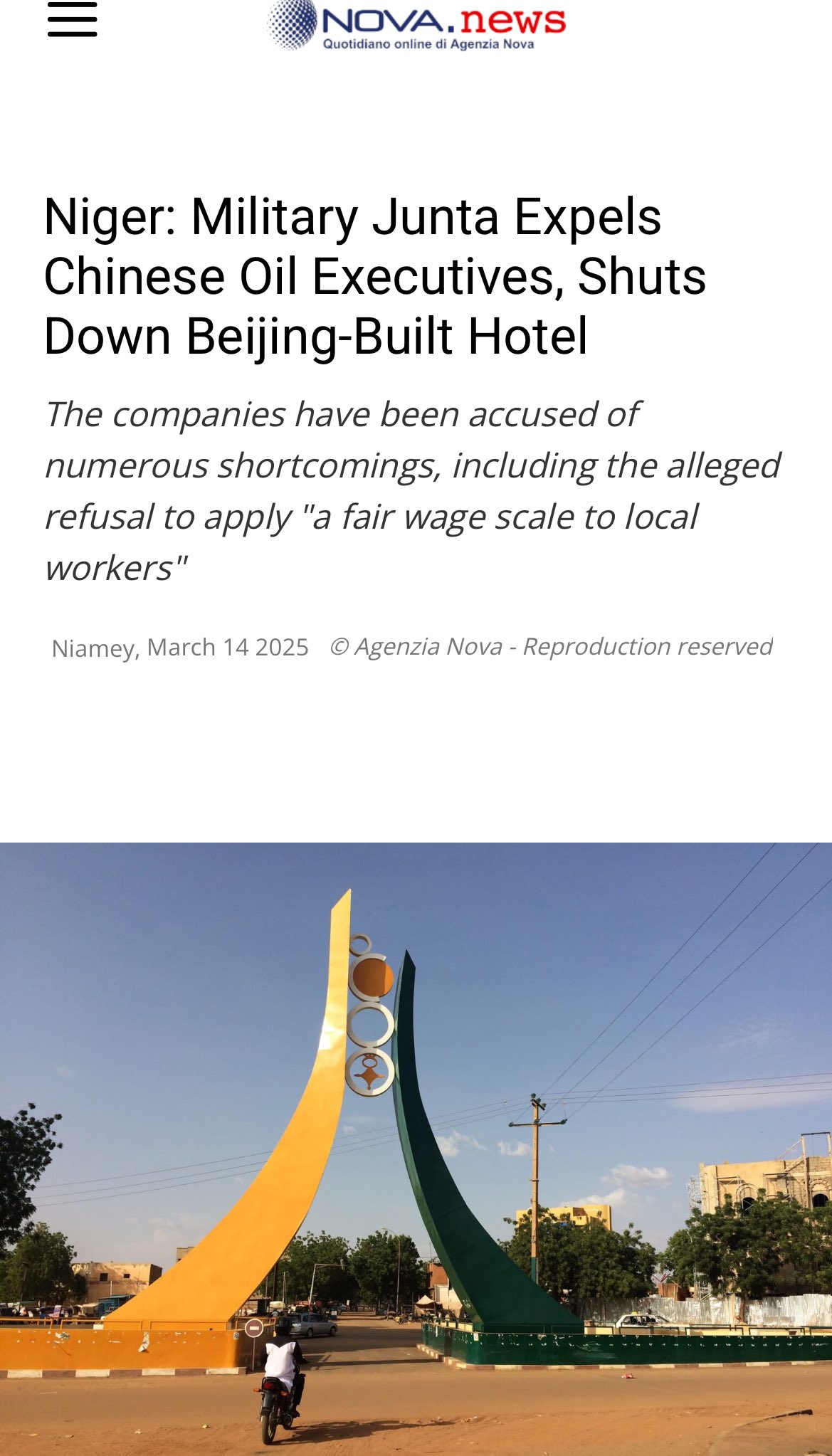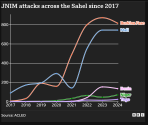Nothing out of the ordinary, just entrepreneurial spirit.
October 7, 2025
The GIST
Chinese companies are changing the way they operate in Africa: Here's how
by Elisa Gambino, Costanza Franceschini,
edited by
, reviewed by
For most of the past 25 years, Chinese construction companies operating in Africa could count on generous financial backing from Chinese banks. Between 2000 and 2019, Chinese funders committed
. Most came from Chinese development finance institutions.
Six years ago, this started to change as Chinese lenders began to pull back. Since 2019, they have committed
for the development of Africa's infrastructure. Yet Chinese companies continue to thrive on the continent. Many remain market leaders in the construction sector in a number of countries. These include Ethiopia, Ghana and Kenya.
To make sense of how Chinese companies continue to expand at a time of dwindling
,
in African markets. In a
we set out the main drivers. We drew on our expertise on the activities of Chinese companies in Africa and undertook extensive fieldwork in China, Kenya and Ghana.
First, Chinese companies draw on their ties to the Chinese state to enter—or establish—their presence in a specific market. This was the case during the boom of Chinese-funded infrastructure projects across Africa. It continues to be the case for projects central to African countries' development agendas.
Second, Chinese companies build trust-based relationships with other companies, governments and international organizations. This enables them to secure projects across borders and regions.
Third, companies rely on the everyday relations established with local politicians, officials, business people and intermediaries.
The key to market expansion is firms' ability to shift between these strategies—sometimes leaning on the Chinese state, sometimes on other multinationals, sometimes on local elites. Our research found that support from the Chinese state was important for market entry. But it did not automatically translate into market survival or expansion. Instead, it is companies' flexible expansion strategy that has made them so successful.
Our findings highlight that African governments and other local actors have a crucial role to play in shaping the activities of Chinese firms. Their policies and negotiation approach actively influence how these companies operate.
Our results also challenge the common assumption that Chinese companies are simply extensions of China's foreign policy. We show that many Chinese firms increasingly behave like their western private counterparts: competing for contracts, partnering with other international actors, and adapting to local conditions.
This shift highlights the opportunities and responsibilities of African actors in shaping the impact Chinese companies have in their economies.
How Chinese companies do it
We collected data through research in China, Kenya and Ghana between 2018 and 2022. We studied various written sources, interviewed Chinese construction company staff, and spoke to African government officials and people, companies and organizations.
We also spent four months observing Chinese construction sites in Kenya and Ghana.
In the first place, the ties that bind Chinese companies to the Chinese state have long been a springboard for overseas expansion.
In Kenya, China Road and Bridge Corporation, a subsidiary of Africa's largest international contractor, China Communication Construction Company,
. At first, the road builder mainly worked as subcontractor for other Asian companies, gaining experience in "how to do business" in this African market. It later became the lead contractor for Chinese-financed megaprojects like the Nairobi–Mombasa Standard Gauge Railway.
State-backed loans gave the company large contracts as well as visibility and credibility with Kenyan authorities.
In Ghana, China Harbor Engineering Company, another China Communication Construction Company subsidiary, entered the market
. The loan gave the harbor company a way in to the Ghanaian market and the opportunity to build long-term relationships.
During a pause in this project, it sought other projects by using its regional networks in west Africa.
Network building
Our evidence shows that Chinese firms operating in African markets cultivate trust-based networks beyond the realm of the Chinese state. These networks include other multinationals, both Chinese and non-Chinese, regional organizations, international financiers and African state actors.
In Ghana, China Harbor Engineering Company relied on its connections with international partners to "keep busy" while Chinese-funded projects stalled. It secured other port projects in west Africa by
involving western multinationals.
These projects anchored the company in Ghana's port sector. They also opened doors to further contracts funded by non-Chinese actors.
In Kenya, China Road and Bridge Corporation similarly expanded outside Chinese-funded projects by winning international tenders. The company's bids were attractive as it was able to redeploy equipment and staff from nearby projects. This lowered the costs of getting started. For example, machinery and quarries used for the Nairobi-Mombasa railway were also used in the Kenyan government-funded Lamu port
.
The ability to mobilize resources across projects strengthens Chinese companies' competitiveness in international tenders.
We found that Chinese firms embed themselves in local political and business environments. They develop individual relations with key political and business figures.
In Kenya, China Road and Bridge Corporation's directors worked closely with politicians and ministries to anticipate infrastructure needs. In some cases, the company carried out feasibility studies before tenders were issued. It could then present ready-made projects, such as the
.
In Ghana, China Harbor Engineering Company relied on local intermediaries to navigate the politics of infrastructure development and secure contracts. Young professionals had ties to both Chinese managers and Ghanaian elites. The company also hired foreign consultants to bolster its reputation with local officials.
The implications
For African governments, this shift means that Chinese firms are no longer closely tied to Beijing's priorities. They will participate in public tenders, invest in public-private partnerships and partner with other multinationals.
Negotiating these firms' role in African economies will require a different strategy. It focused less on geopolitics and more on regulation of standards and alignment with industrial policy.
The next phase of Africa–China infrastructural engagement will not be defined by large Chinese loan packages. It will be driven by operational contexts, various alliances, and a competitive world market.
Provided by


